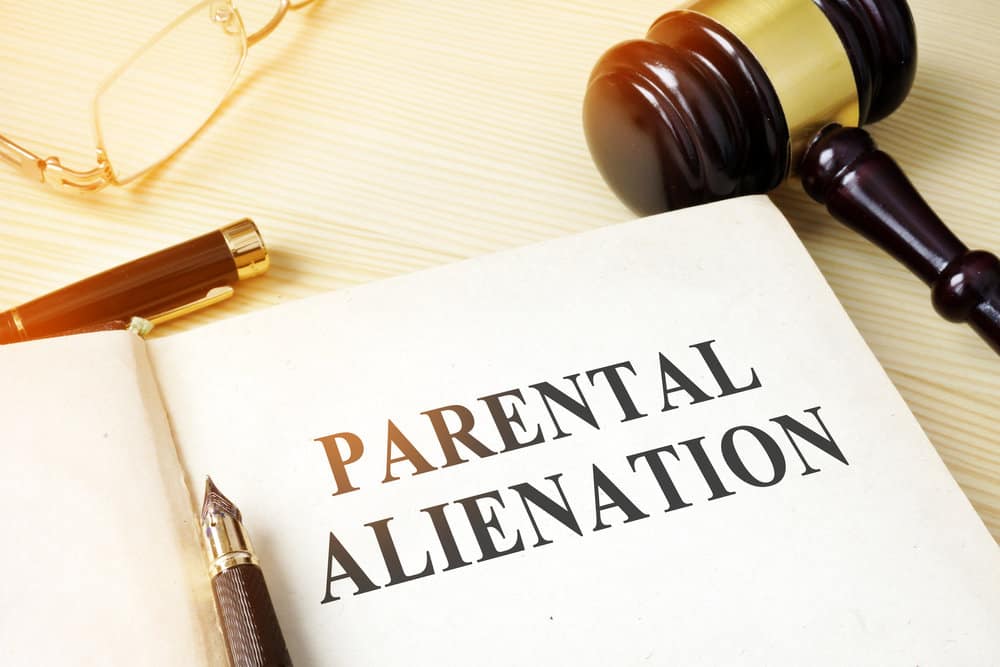Parental alienation is a complex and emotionally charged issue that affects numerous families worldwide. It occurs when one parent intentionally manipulates a child against the other parent, causing a rift in their relationship.
Therapists specializing in parental alienation are on the rise, motivated by the need to address this pervasive problem that has lasting effects on parents and children. These professionals employ various therapeutic approaches to help families overcome the challenges brought on by alienation and build healthier relationships moving forward.
Understanding and addressing parental alienation require a keen awareness of the manipulative tactics employed and their potential impact on the child’s emotional well-being. Legal considerations often come into play, further complicating the situation. Parental alienation therapists must navigate these complexities, advocating for the child’s best interests while helping both parents recognize and address their roles in the alienation process.
Prevention is always preferable to addressing alienation once it has already occurred. Parental alienation therapists aim to empower families to recognize the early signs of alienation, navigate high-conflict divorces or custody disputes, and maintain open communication between parents and children. Although research on parental alienation is still evolving, the role of therapists in this process cannot be overstated: they are pivotal in helping families heal and forge stronger bonds.
Key Takeaways
- Parental alienation therapists specialize in addressing the manipulative tactics used in alienation and their impact on family relationships.
- Navigating legal considerations and advocating for the child’s best interests are central to the role of a parental alienation therapist.
- Therapists employ Prevention and early intervention to help families maintain open communication and healthy relationships.
Understanding Parental Alienation
Parental alienation occurs when a child becomes estranged from one parent due to the emotional manipulation or psychological pressure exerted by the other. This phenomenon can profoundly impact the mental health of both the child and the alienated parent, making it a complex challenge to address in the context of divorce and custody disputes.
Causes and Factors
Several potential causes and factors contribute to parental alienation. These may include:
- A bitter divorce or separation leads one parent to undermine the other to gain custody or control.
- Insecurity or jealousy on the part of the alienating parent.
- Mental health issues affecting the alienating parent, such as narcissism or borderline personality disorder.
- Long-standing unresolved conflicts or unresolved issues in the relationship between the parents.
It is important to understand that parental alienation can occur regardless of the alienated parent’s behavior or character. In many cases, the alienating parent’s actions are driven by their emotional issues, and their perception of the alienated parent may be distorted or exaggerated.
Signs and Characteristics
Recognizing the signs of parental alienation is essential for therapists and other professionals involved in addressing this complex issue. Some of the common indicators of parental alienation include:
- The child expresses unjustified hatred or fear towards the alienated parent.
- The child has an unwarranted preference for the alienating parent and refuses contact with the other parent.
- The alienating parent makes false accusations against the alienated parent, often related to abuse or neglect.
- The alienating parent undermines the child’s relationship with the alienated parent through badmouthing, spreading lies, or limiting contact.
When assessing a case of potential parental alienation, the therapist must consider various factors, such as the child’s age, the duration of the alienation, and any corroborating evidence that may help to determine the underlying causes and dynamics of the situation. Through a comprehensive evaluation, a therapist can develop effective strategies for addressing parental alienation and helping to restore the child’s relationship with the alienated parent.
Effects on Children
Emotional Consequences
Parental alienation can have significant emotional consequences for children. They may experience confusion, guilt, and sadness as they are torn between their love for both parents. The alienating parent often engages in manipulative behaviors, causing the child to question their relationship with the targeted parent. This may lead to negative beliefs and emotions towards the targeted parent, causing strain and emotional turmoil in the child’s life.
Mental health professionals recognize that manipulating a child’s emotions, often called brainwashing, can result in significant psychological distress. The emotional abuse experienced by these children can have long-lasting effects and may even lead to trauma.
Long-Term Impact
The long-term impact of parental alienation on children can be severe. Due to the emotional consequences experienced, children may struggle with empathy and understanding in their relationships with others. This difficulty can affect their future interpersonal relationships, causing ongoing emotional strain.
As alienated children grow older, they may carry guilt, mistrust, and anger from childhood into adulthood. This could affect how they view and interact with others and possibly result in difficulties in forming and maintaining healthy relationships. Furthermore, long-term emotional distress can negatively impact mental health, necessitating the help of mental health professionals.
Research shows that parental alienation may also contribute to the developing of certain psychological syndromes, such as attachment disorders or anxiety disorders, in children who experience it. The lasting effects of parental alienation can lead to many challenges for these individuals as they navigate life, relationships, and mental health.

Legal Considerations
Custody and Visitation Issues
In cases of parental alienation, there are often disputes over child custody and visitation. Courts may need to intervene to determine the best interests of the child. A mental health professional typically conducts a custody evaluation to assess each parent’s ability to care for and have a positive relationship with the child.
Parents involved in such disputes need to understand their rights under court orders. Noncompliance may result in legal consequences. Additionally, keeping records of interactions with the other parent and the child can be helpful evidence for court proceedings.
Role of Lawyers and Courts
The role of lawyers in parental alienation cases is to represent and advocate for their client’s interests. They help navigate the legal system and communicate with the judge and opposing counsel. Parents must work closely with their lawyers and be transparent in sharing information relevant to the case.
Courts are responsible for resolving custody and visitation issues in cases of parental alienation. The judge will consider the custody evaluation findings, the evidence presented by both parties, and other factors to determine the best course of action in the child’s best interest. This may include revising existing court orders or imposing new ones, such as supervised visitation or requiring family therapy.
Addressing Parental Alienation
Treatment and Therapy Options
There are various treatment and therapy options available to address parental alienation. A therapist specializing in this area can help guide families through identifying the most suitable approach. Reunification therapy, for instance, is designed to help repair and rebuild the relationship between the targeted parent and child. This form of therapy often involves individual sessions with both the parent and the child, followed by family sessions where they work on communication and trust-building exercises.
In addition to reunification therapy, other therapy options may include individual therapy for the targeted parent, which can help them cope with the emotional strain and develop strategies to stay connected with their child. Furthermore, some therapists may recommend family systems or cognitive-behavioral therapy to address the underlying issues contributing to parental alienation.
Support for Targeted Parents
Targeted parents may benefit greatly from support groups for those experiencing parental alienation. These groups can provide emotional assistance, practical advice, and camaraderie to others who understand the challenges faced by families dealing with this issue. Many therapists or mental health professionals can help connect parents to local support groups or online forums that address parental alienation.
In conclusion, addressing parental alienation typically involves a combination of therapy options and support for targeted parents. Working closely with a therapist makes it possible to identify the most effective interventions and find the necessary support for the entire family during this difficult time.
Preventing Parental Alienation
Parental alienation is a damaging occurrence for children and families. To prevent it, parents and professionals can take several steps.
First, establishing a parenting schedule is crucial in preventing parental alienation. When both parents are consistently involved in their child’s life, it becomes more difficult for one parent to manipulate the child against the other. A well-structured schedule ensures that both parents receive adequate and equitable time with their children.
Creating a comprehensive parenting plan can help prevent manipulation and guide both parents in navigating their responsibilities. A detailed parenting plan outlines the expectations for each parent, including communication methods, decision-making processes, and how to handle disputes. Moreover, it includes a clear outline of the child’s needs and interests, which helps keep the focus on the child’s well-being.
In cases where parents struggle to communicate and resolve issues independently, a parenting coordinator can be a valuable resource. This neutral professional strives to mediate disputes and facilitate healthy communication between the parents. By providing guidance and helping parents navigate conflicts, the parenting coordinator helps to maintain a positive parenting environment. This proactive approach reduces the chances of parental alienation taking hold.
Additionally, practicing open communication with children is essential in preventing alienation. Parents should encourage their children to express their feelings and experiences without fear of judgment. Emphasizing that both parents love and support the child, regardless of the circumstances, is pivotal in maintaining strong bonds.
In summary, preventing parental alienation involves structured planning, professional support, and open communication. Families can reduce the risk of parental alienation and foster healthy relationships by focusing on the child’s well-being and ensuring a positive environment.

Challenges in Research and Expert Opinions
Controversies and Criticisms
Although widely recognized, parental alienation faces challenges in research and expert opinions. One of the pioneer researchers in this area, Richard Gardner, proposed the concept of Parental Alienation Syndrome (PAS), the primary way to describe the issue. However, several experts in this field have voiced their concerns and criticized some aspects of PAS.
The concept of an alienator is often linked to a parent who manipulates a child’s emotions against the other parent. This manipulation can range from mild to severe, with some cases involving child abuse. However, it has been argued that identifying an alienator may not always be accurate or straightforward.
There is a thin line between genuine estrangement due to child abuse and a parent falsely accused of alienation. Many professionals in the field have questioned the validity of some claims made by experts and researchers in their studies, cautioning against generalizing these findings.
Evolving Understanding
As the field of parental alienation therapy progresses, a better understanding of the nuances and complexities is emerging. Researchers and practitioners increasingly know that each case may present unique challenges and require a customized approach.
Some recent studies have focused on differentiating between alienation, estrangement, and attachment disorders. This has led to heated debates among experts, with some arguing that the original idea of PAS may be too simplistic to capture the dynamics between a child and an alienator accurately.
Several experts advocate for adopting a more holistic approach to understanding and addressing parental alienation, considering factors such as the child’s age, emotional development, and the specific circumstances surrounding each family.
Despite the challenges and controversies surrounding parental alienation research and therapy, it remains an important study area for professionals working with families affected by these issues. Future research must continue to be rigorous, evidence-based, and considerate of the complexities involved in these situations.
Frequently Asked Questions
What are the symptoms of parental alienation?
Parental alienation occurs when a child becomes emotionally distant from one parent due to the other parent’s influence. Symptoms may include:
- Unwarranted hostility, anger, or fear toward the alienated parent
- Refusal to communicate, visit, or spend time with the alienated parent
- A child’s preference for one parent over the other without apparent reason
- Lack of empathy or understanding of the alienated parent’s feelings
How can a therapist help in cases of parental alienation?
A therapist can provide a safe environment for all parties to discuss their feelings and thoughts. They can help:
- Identify and assess the extent of parental alienation
- Develop strategies to improve communication and rebuild trust
- Educate parents about the negative effects of alienation on their child
- Monitor progress and adjust treatment plans as necessary
What is the role of a therapist in reunifying a child with an alienated parent?
The therapist’s role is to facilitate open communication and understanding, helping to rebuild the relationship between the child and the alienated parent. This may involve:
- Addressing any misconceptions or negative beliefs, the child may have
- Encouraging and supporting the child to express their feelings and concerns
- Providing guidance and empathy to both the child and the alienated parent
How long does therapy typically last for parental alienation cases?
The duration of therapy for parental alienation varies on a case-by-case basis. Factors that may influence the length of treatment include:
- The severity of the alienation
- The willingness of all parties to engage in therapy
- The age of the child and the length of time alienation has occurred
What are the most effective therapy techniques for parental alienation?
There is no one-size-fits-all approach to therapy, as effective techniques may vary according to individual circumstances. Some common methods used by therapists include:
- Cognitive-behavioral therapy (CBT)
- Family systems therapy
- Parent-child interaction therapy (PCIT)
- Mediation
Are support groups available for parents experiencing alienation?
Yes, support groups for parents experiencing alienation can be helpful resources for emotional support and practical advice. These groups may be organized through local therapists, community centers, or online platforms. They offer a forum to share experiences, discuss challenges, and learn from others who have faced similar situations.




